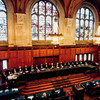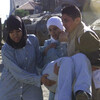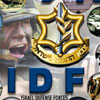
International Court orders proceedings in wall case
18 December 2003
Further to the request by the General Assembly of the United Nations to the International Court of Justice “to urgently render an advisory opinion” on the question of the Legal Consequences of the Construction of a Wall in the Occupied Palestinian Territory, the International Court of Justice today made an Order organizing the proceedings. The Court takes all necesssary steps to accelerate the procedure. It fixed 30 January 2004 as deadline before the United Nations and its Member States could submit to the Court written statements. Read more about International Court orders proceedings in wall case








